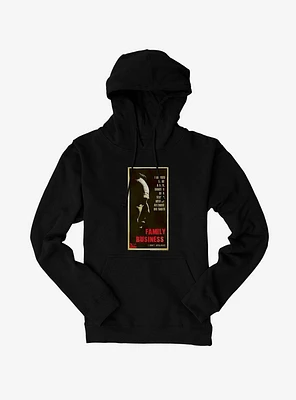Home
Refuse to Lose
Loading Inventory...
Barnes and Noble
Refuse to Lose
Current price: $20.99


Barnes and Noble
Refuse to Lose
Current price: $20.99
Loading Inventory...
Size: OS
*Product Information may vary - to confirm product availability, pricing, and additional information please contact Barnes and Noble
Jarekus Singleton
has an interesting story. Born in 1984 in Clinton, Mississippi, and raised on gospel, he was playing bass in his grandfather's church by the time he was nine years old. Later, switching to electric guitar, he absorbed the secular music around him, influenced by artists as diverse as
Stevie Ray Vaughan
, the three blues Kings (
B.B.
,
Albert
, and
Freddie
),
Brad Paisley
(a pretty darn good guitar player), and rappers
Jay-Z
and
Twista
, among others. But
Singleton
was also a pretty darn good basketball player, good enough to be the starting point guard for three years at the University of Southern Mississippi, and apparently headed for a career in the NBA. Then he blew his ankle out in 2009, and that was it. So
turned back to the guitar, and let it be said, whether he was aware of it or not, he was always a musician who happened to play basketball rather than the other way around.
Refuse to Lose
, his second album, and first for
Alligator Records
, makes one glad for basketball's loss.
combines his fiery, fascinating, I-may-go-anywhere electric guitar leads with an urban, hip-hop, narrative songwriting style that still remains undoubtedly rooted in the blues, and when he's at his best, like with the opener and title tune here, "I Refuse to Lose," which is pretty much his life story, he hits all the corners, and brings blues right to the urban streets. Funky, gritty, soulful, and even jazzy songs like "Gonna Let Go" and "Keep Pushin'" may not be rap, but they share common themes and concerns.
sweeps all of it together on
I Refuse to Lose
, even name-checking
Stevie Ray Vaughan & Double Trouble
in "Hell," a gritty chunk of gospel-blues complete with churchy organ. Make no mistake, though. This is not a hip-hop album, or even a pop album. It's a blues album, and that
manages to stretch the blues genre while still maintaining all of its familiar attributes is a pretty impressive achievement. ~ Steve Leggett
has an interesting story. Born in 1984 in Clinton, Mississippi, and raised on gospel, he was playing bass in his grandfather's church by the time he was nine years old. Later, switching to electric guitar, he absorbed the secular music around him, influenced by artists as diverse as
Stevie Ray Vaughan
, the three blues Kings (
B.B.
,
Albert
, and
Freddie
),
Brad Paisley
(a pretty darn good guitar player), and rappers
Jay-Z
and
Twista
, among others. But
Singleton
was also a pretty darn good basketball player, good enough to be the starting point guard for three years at the University of Southern Mississippi, and apparently headed for a career in the NBA. Then he blew his ankle out in 2009, and that was it. So
turned back to the guitar, and let it be said, whether he was aware of it or not, he was always a musician who happened to play basketball rather than the other way around.
Refuse to Lose
, his second album, and first for
Alligator Records
, makes one glad for basketball's loss.
combines his fiery, fascinating, I-may-go-anywhere electric guitar leads with an urban, hip-hop, narrative songwriting style that still remains undoubtedly rooted in the blues, and when he's at his best, like with the opener and title tune here, "I Refuse to Lose," which is pretty much his life story, he hits all the corners, and brings blues right to the urban streets. Funky, gritty, soulful, and even jazzy songs like "Gonna Let Go" and "Keep Pushin'" may not be rap, but they share common themes and concerns.
sweeps all of it together on
I Refuse to Lose
, even name-checking
Stevie Ray Vaughan & Double Trouble
in "Hell," a gritty chunk of gospel-blues complete with churchy organ. Make no mistake, though. This is not a hip-hop album, or even a pop album. It's a blues album, and that
manages to stretch the blues genre while still maintaining all of its familiar attributes is a pretty impressive achievement. ~ Steve Leggett


















